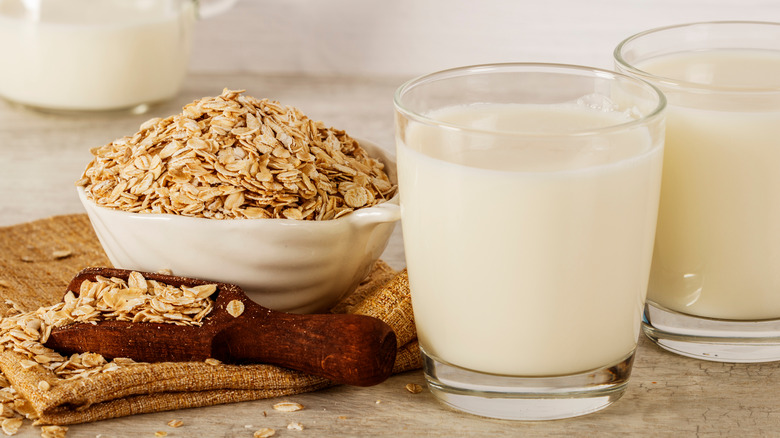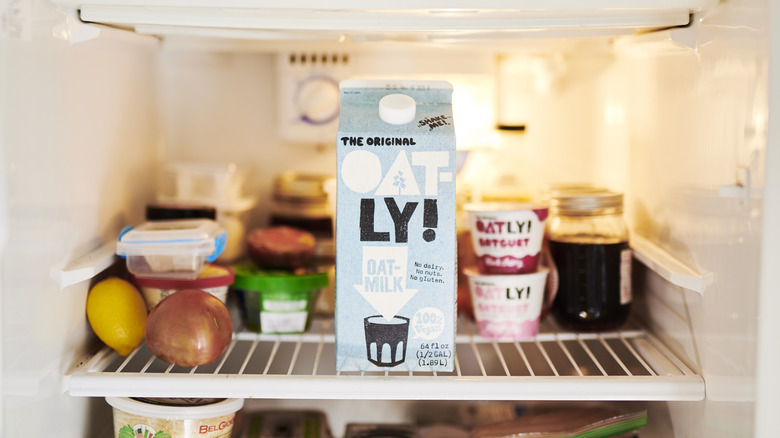Why Oat Milk Could Become A Lot More Nutritious
Oat milk fans, rejoice! Your favorite dairy alternative may be about to get a major health boost. Though — thanks to its simple formula — folks can easily make their own oat milk at home, enthusiasts of the drink have enjoyed a growing array of premade oat milk options increasingly crowding the grocery store dairy aisle.
Judging by the data alone, there's a good chance you're an oat milk fan ... or have at least brought home a carton of the stuff to try out. Allied Market Research estimates the global oat milk market will reach $995.3 million by 2027, up from $360.5 million in 2019. And it's not just vegans and people with milk allergies who are drinking the stuff: Though interest in a plant-based diet is a factor, many consumers choose oat milk for its perceived health benefits. And now, according to FoodNavigator U.S.A., food scientists want to further enhance this dairy-free, gluten-free, and allergy-friendly favorite to provide even more nutrition.
Experts will be rolling out new oat milk health developments at Chicago's IFT First (which stands for Food Improved by Research, Science, and Technology) from July 10 to 13. In addition to making oat milk more nutritious, scientists are also looking to extend oat milk's shelf life and make its production more sustainable. Even various oat milk brands' packaging is under the microscope.
Food scientists are reimagining what oat milk can be
IFT First describes itself as the largest B2B food expo in the world — and researchers will be bringing their best to the table.
One of the perhaps better-known health benefits of oats is their fiber content. According to Healthline, just 3.5 ounces of oats contain a whopping 10.6 grams of fiber — in fact, oats are composed of close to 11% fiber alone. Proactive Health Labs says most oat milks boast two grams of fiber per serving, compared to one gram per serving in almond and soy milk and zero in cow's milk. But researchers presenting at IFT First are going beyond the surface to discover what other nutritional qualities oat milk has — or could be re-engineered to contain.
Clair Noack of Stuben Foods tested the avenanthramide (AVN) content of various oat milk brands, per FoodNavigator U.S.A., by freeze-drying 10 different products into powder and measuring their AVN content. AVNs are naturally-occurring alkaloids in oats, explains biotechnology company Ceapro, which contain anti-inflammatory properties and promote skin health. Researchers also looked into the impact of heating methods currently used in oat milk production on nutrition, among other things.
Jorden Edinger, RDN, LD, told the Cleveland Clinic many manufacturers already add vitamin D and calcium to their oat milk, boosting health benefits with additional micronutrients. Soon, it looks like food science technology could incorporate other transformative nutrients, too.

